1540 Fractional laser Pre & Post instructions
Pretreatment Instructions:
- Tretinoin and topical retinoids, e.g., Retin-A®, Renova® and exfoliating products. Although use in the
area to be treated is not absolutely contraindicated, it is known to make skin more sensitive and prone
to exfoliation. Candidates for treatment should be advised to discontinue the use of exfoliating creams
and other exfoliating products two (2) weeks prior to and during the entire treatment course. - Unprotected sun exposure or use of tanning beds or creams in areas to be treated. Protected sun
exposure means wearing protective clothing and the daily use of a SPF-45 or greater sunscreen. Those
being treated should be advised to discontinue indoor and outdoor tanning at least four (4) weeks prior
to treatment, during the treatment course, and four to six (4 to 6) weeks after treatment. This will
reduce the chance of skin color changes and manifestation of new pigmented lesions. - Pigmented lesions. If treating over a pigmented lesion, the lesion must be diagnosed as benign by a
qualified practitioner prior to treatment with a laser System. Inaccurate diagnosis and inadvertent
treatment of a skin cancer may lead to a delay in the client receiving proper medical care. - Allergies. Ensure that client is not allergic to medications, latex, or other substances that may be used
during treatment course. - Medications. Review both prescriptions and non-prescriptions. Be sure to include herbal and natural
remedies as some of these may cause photosensitivity. For persons taking photosensitizing medication,
perform test spots at least 24 hours before treatment. - Herpes I or II within the treatment area. Before a treatment, candidates should consult their primary
care physician for medical evaluation and possible prophylaxis to minimize the chance of a herpetic
breakout. A small percentage of persons may experience an activation of oral herpes simplex virus
infection within five to ten (5-10) days after the procedure, even with appropriate prophylaxis. - Heat Urticaria. Persons with a history of heat urticaria may develop hives with exposure to laser
pulses. - Botulinums: There is the possibility for increased diffusion of Botulinums, such as Botox®, as a result of
edema associated with facial light-based treatment, which may result in facial asymmetry when these
procedures are performed at the same visit. Many physicians recommend waiting for a minimum of 10
days after a Botox injection before performing facial laser treatments - Other Conditions. History of vitiligo, eczema, psoriasis, allergic dermatitis, autoimmune diseases, any
diseases affecting collagen including Ehlers-Danlos syndrome, scleroderma, and other skin conditions
may affect a person’s response to treatment.
POST-TREATMENT GUIDELINES:
- Application of Cool Roller™ or cool gel packs immediately following treatment can help alleviate itchiness and stinging that may occur after treatment.
- Once skin has cooled down, an ointment or gel may be used to cover the treated skin and keep it
moist to avoid the skin drying out and being crusty and desquamated. NOTE: The ointment or gels
may exacerbate acne breakouts. - Gentle cleansing is permitted after treatment. At the provider's discretion, the use of non-irritating
cosmetics may be considered based on the level of treatment performed, and tissue response. - Clients should avoid heavy makeup or moisturizers for 24 hours after treatment.
- Treated areas should not be picked or scrubbed.
- As healing occurs, it is essential to avoid injury and sun exposure for at least two (2) weeks
following treatments. It is highly recommended that clients use a sunscreen designed for sensitive
skin with SPF 45 or higher containing UVA/UVB protection between treatments. - Those being treated should also continue to use SPF 45 or higher up to 6 months following final
treatment whenever they are outside. - Avoid excessive exercise for one to three (1 – 3) days after treatment.
- Once the treatment area has healed, some itching or dryness may occur. This will gradually clear.
The use of non-irritating, non-comedogenic moisturizers may provide some relief. - Advise the person being treated to contact the treatment provider if there are any issues or
concerns following the treatment.
Stay tuned to the latest updates in development and sign up for our newsletter.

